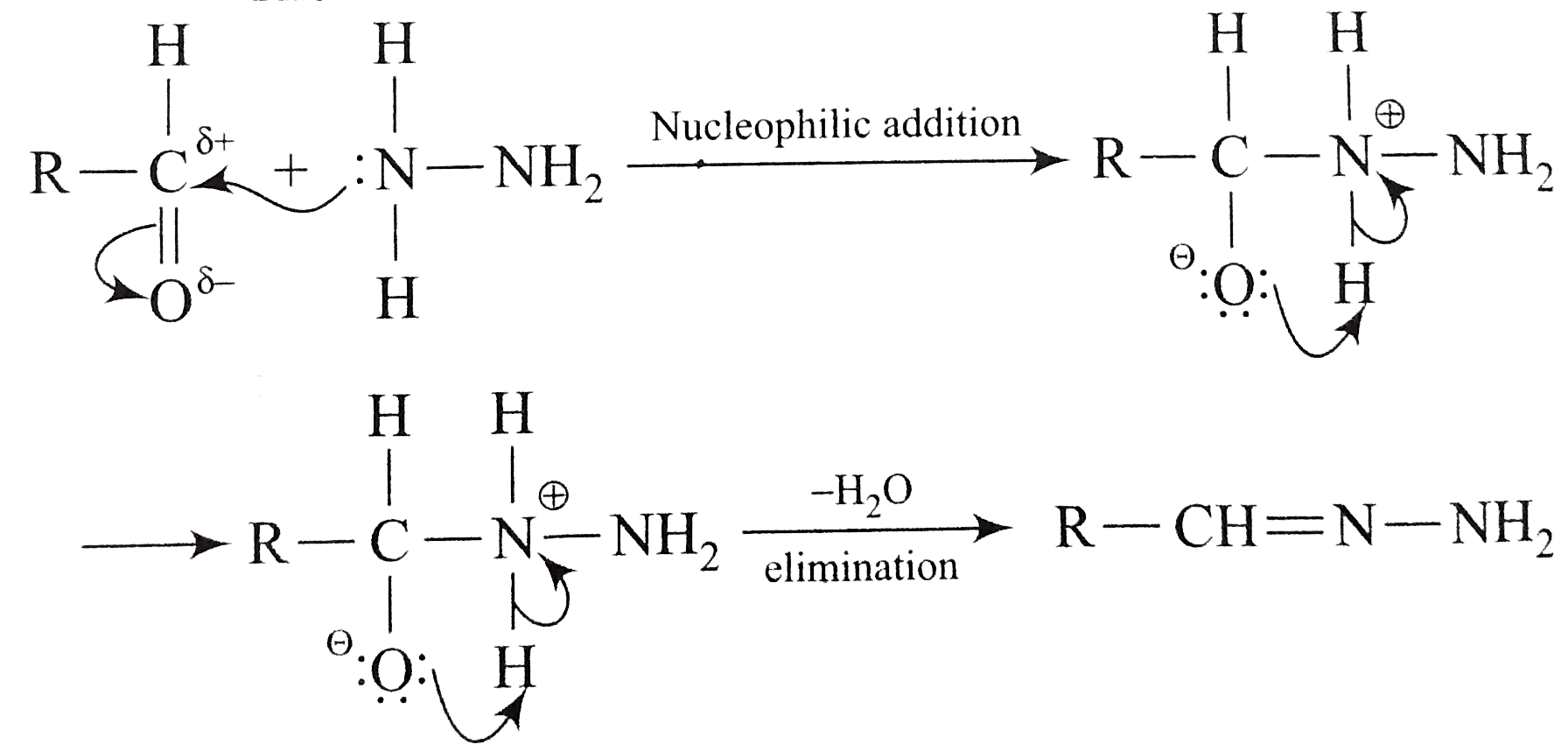Consider the reaction
What sort of reaction is it?
Electrophilic addition - elimination reaction
Free redical addition - elimination reaction
Electrophilic substitution - elimination reaction
Nucleophilic addition - elimination reaction
The correct Answer is:D
Consider the reaction

Topper's Solved these Questions
- ALDEHYDES, KETONES AND CARBOXYLIC ACIDBook:A2ZChapter:ALDEHYDES, KETONES AND CARBOXYLIC ACIDExercise:AIIMS Questions
Explore 40 Videos
- ALDEHYDES, KETONES AND CARBOXYLIC ACIDBook:A2ZChapter:ALDEHYDES, KETONES AND CARBOXYLIC ACIDExercise:Assertion-Reasoning Questions
Explore 7 Videos
- ALDEHYDES, KETONES AND CARBOXYLIC ACIDBook:A2ZChapter:ALDEHYDES, KETONES AND CARBOXYLIC ACIDExercise:Section B - Assertion Reasoning
Explore 33 Videos
- ALCOHOLS, PHENOLS AND ETHERSBook:A2ZChapter:ALCOHOLS, PHENOLS AND ETHERSExercise:Section D - Chapter End Test
Explore 30 Videos
- BIOMOLECULESBook:A2ZChapter:BIOMOLECULESExercise:Section D - Chapter End Test
Explore 30 Videos
Similar Questions
Knowledge Check
Consider the reaction
RCHO+NH2NH2→R−CH=NNH2
What sort of reaction is it?AElectrophilic addition - elimination reactionBFree radical addition - elimination reactionCElectrophilic substitution - elimination reactionDNucleophilic addition - elimination reactionConsider the reaction
RCHO+NH2NH2→R−CH=NNH2
What sort of reaction is it?AElectrophilic addition-elimination reactionBFree radical addition-elimination reactionCElectrophilic substitution-elimination reactionDNucleophilic addition-elimination reactionConsider the reaction
RCHO+NH2NH2→R−CH=NNH2
What sort of reaction is it?AElectrophilic addition elimination reactionBFree radical addition elimination reactionCElectrophilic substitution elimination reactionDNucleophilic addition elimination reaction
For the reaction
N2+3H2=2NH3,
View SolutionAssertion: In the reaction N2+3H2→2NH3, the rate of reaction is different in terms of N2,H2 and NH3.
Reason: Rate of disapperenace of N2 and H2 and rate of formation of NH3 are not equal to each other.
View SolutionH2N−CH2−CH2−NH2 serves as
View SolutionAssertion (A) : In the reaction, N2+3H2→2NH3, the rate of reaction is different in terms of N2,H2 and NH3.
Reason (R ): The rate of reaction is equal to the rate of disappearance of a reactant or rate of formation of a Product.
View SolutionIn the reaction, NH2+H2O→NH+3+OH−, water is
View Solution